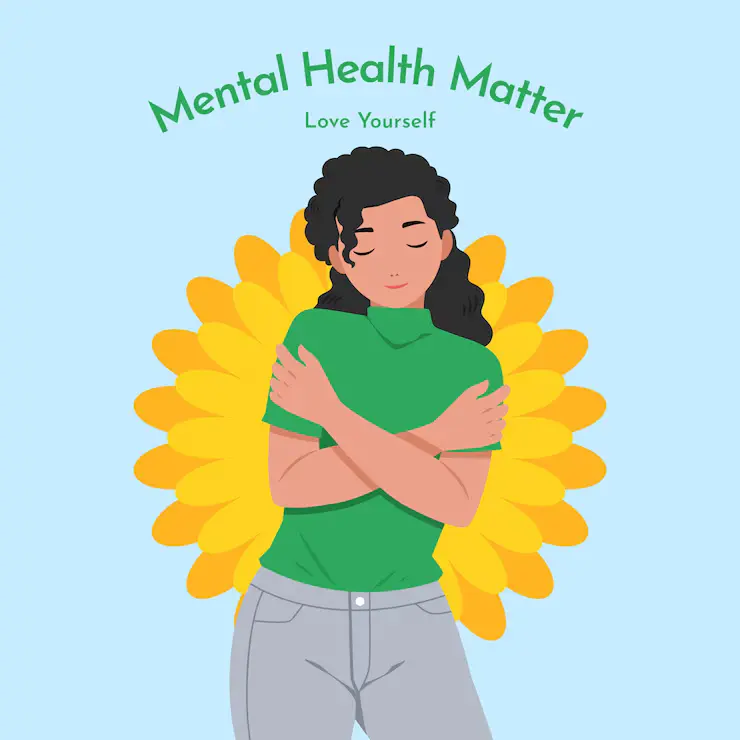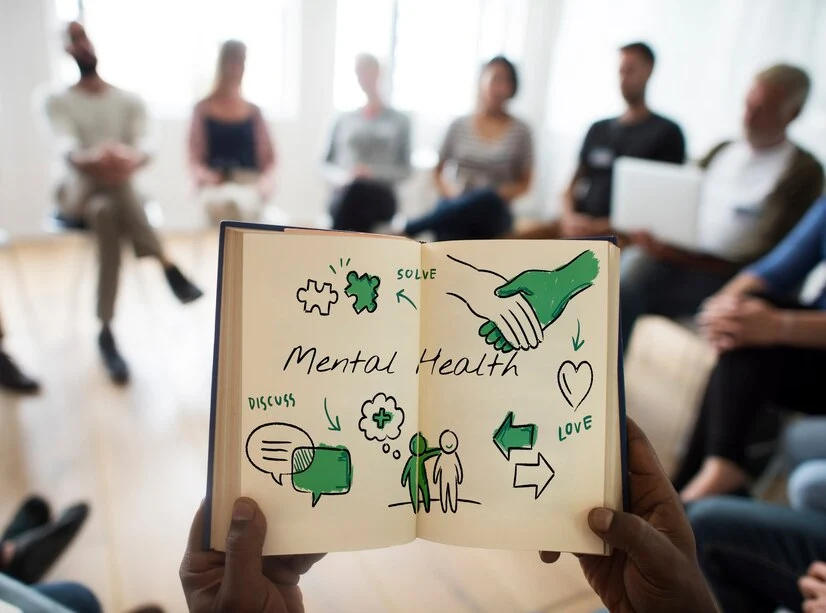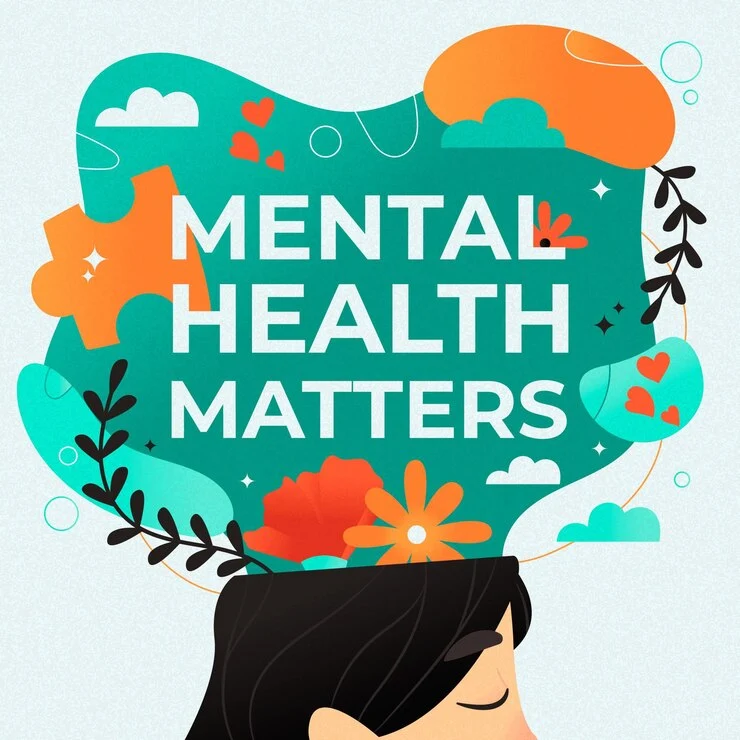Introduction: Why Mental Health Matters

Nowadays, mental health is the most important things in this world. It affects how we think, feel and behave. Our mental health defines literally everything about us, from how we deal with stress to what kind of relationships at work or in general do attract as well. But, sadly still mental health is an area that continues to go unnoticed and missed.
The objective of this article is to help you understand why mental health matters and what we can do about it. This article will delve deeper into what mental health is, difference between mental health and mental illness as well as why mental health awareness is important.
Understanding Mental Health: The Foundation of Well-being

Mental health includes our emotional, psychological and social well-being. It impacts how we think, feel and conduct ourselves when dealing with stress, relating to other and making choices. Mental well-being is much more than the absence of mental illness. Good mental health enables us to manage life, develop and maintain healthy relationships with one another and be able to operate independently.
Our mental health is an important pillar to overall well-being that include our thoughts, emotions and actions as we care to understand them. Putting our mental health first can help to create more balance and joy in life.
Difference Between Mental Health and Mental Illness

Although the terms “mental health” and “mental illness” are often used interchangeably, they mainly mean different things. Mental health refers to your wellbeing, whereas mental illness includes symptoms of medications such as depression, anxiety or bipolar disorder. Mental illness is a condition that affects person’s thinking, feeling or mood and it may affect daily functioning.
Mental health awareness focuses on differentiating mental health and mental illness. It reminds us all that we deal with mental health in the same way how everyone deals physical health. Mental illness exists on a spectrum and you can have poor mental health without suffering from ant formal diagnosis, just as it is possible to experience good mental health with a diagnosed pathology.
The Importance of Mental Health Awareness: A Global Priority

The importance of mental health awareness is evident in developing a society that identifies and tackles with its troubles. Educating society will help stigmatize mental disability and help individuals in seeking assistance which they need. It also helps individuals in sharing their feelings and they do not feel hesistate to talk about their mental health issues without being embarrased.
Understanding these characteristics of mental health helps us recognize the earliest distress signs, so that we can be proactive in addressing them. Mental health programs and awareness campaigns are important means of probbing the public to discuss openly their mental health issues. They offer much of the necessary resources and aid for everyone else including all forms of practice to gain a better understanding and culture further acceptance.
Empowering Mental Health Awareness in the Workplace

Work is where we spent most of our lives, so it is important to prioritize mental health awareness in the workplace. A workplace must generate an environment supportive of mental health and hygiene that result in enhanced satisfaction, effeciency as well as retention.
Employers can lead the way in helping to raise mental health awareness through offering programs addressing policy change, availabililty of resources and cultural acceptance for speaking up. When mental health is given the importance that it deserves within a company setting, employees will feel more cared for and successful in their overall well-being.
Factors Affecting Mental Health

Mental health is the result of a multitude of factors, many due to genetics and environment or lifestyle habits, mixed with their experiences. There are lots of things that have an impact on mental health, some general ones include:
- Environmental Factors: Living conditions, work environment and social support systems are other reasons which may lead to some mental illnesses.
- Lifestyle Factors: Diet, exerice, rest and substance can have an effect on mental health.
- Biological Factors: Just like genetics, brain chemistry and physical health conditions can also alter mental stability.
- Life Events: Trauma, abuse and experiences of significant life changes can contribute to mental health issues.
Knowing these things is key in keeping a healthy mind and understanding when you may need to contact the professionals on hand. But we must not forget that mental health is dynamic as it evolves with time and different circumstances of life.
Yoga for Mental Health: A Path to Inner Peace

Yoga is not just limited to the body but also keeps a person mentally fit. Yoga weaves physical posture, breathing execises and meditation together to decrease stress levels of an individual, enhance focus abilities as well as safeguard emotional resilience. According to research, consistent practice of yoga can improve mental health and reduce symptoms of anxiety, depression and stress.
Yoga encourages mindfulness or presence in the moment without judgement. In short, what it means is that by training attentional control and non-judgement in mindfulness can actually lead to elimination of all the wrong way thinking pattern to optimal emotional regulation or activation through balanced levels. Moreover, yoga is a physical practice which means that it can also help alleviate tension in the body, allowing us to rest and calm.
Principles of Mental Health: Building a Resilient Mind

Given below are the principles of mental health:
- Self-Awareness: The first step in mental health is to be aware of your own thoughts, emotions and behaviours. Self-awareness allows you to know when something is off and correct it before things become too far gone.
- Emotional Regulation: Mastering the control and management of your own emotional state is important for sustaining mental health. Deep breathing, minfulness and journaling are exercises that can assist you to manage your emotions throughout the effort.
- Seeking support: Occassionally, you have to call out sick with your mental health. Whether you talk to a friend, see a therapist or even join an addiction support group or having someone who supports you, can massively help your mental health.
These principles will form the basis of mental health and resilience that lasts.
How to Check Your Mental Health: A Practical Guide

You should evaluate your mental health regularly. Check out the given guide on how to look after your mental health:
- Reflect on Your Emotions: Reflect on how you feel everyday and how are you feeling when it comes to negative emotions like sadness, anger or even anxiety? If yes, then try to figure out the root of that and see if you can solve it.
- Evaluate Your Stress Levels: Be mindful of how stressed out you are. Do you have anxiety, stress? If it is, then think about what you can do to lower your stress level, whether this be by creating boundaries between professional and personal life, taking breaks or using relaxation strategies.
- Assess Your Rekationships: Think about how good your relationships are. Do the people around you support your goals? Do you have positive relationships? If not, maybe you should improve your relationships or make new ones.
- Check Your Physical Health: Evaluate your physical health, as physical and mental health are closely realted. Sleep, nutrition and movement: are you getting enough of each? If not, then plan to care for your physical health; a healthy body usually contributes positively toward mental well-being.
If your self-assessment reveals areas of concern it may be time to speak with a professional or make some changes in lifestyle that could better protect and improve overall mental health.
Mental Health and Hygiene: Everyday Practices for a Healthy Mind

There is an intimate connection between mental health and our hygiene. The same way physical hygiene is neccessary for stopping us from falling sick, mental hygience avoids the chances of us having a problem in mental health. Preventative mental hygiene practices such as promoting a work-life balance, sleeping well and keeping in contact with your loved ones.
By keeping your mind clean and clear, this would be a great way to protect against mental health issues. Mental hygiene should be part of our daily routine, equivalent to physical hygiene.
Following are a few habits to pursue in order to maintain the mental hygiene:
- Stay Organized: A clean environment is good for you and a dirty place can add confusion to the mind. Create a stress-free area by maintaining healthy living and better work spaces.
- Prioritize Sleep: Sleep is actually crucial for your mental clarity and emotional well-being. Sleep 7-9 quality hours per night to support your mental health.
- Stay Socially Connected: Regualr interaction prevents isloation and helps with feelings of loneliness. Spend quality time with friends and family, if you can and do social activities that makes you feel good.
Adding these things to your everyday routine can make you mentally stable, accomplishing more balance and satisfaction of life.
Mental Health Matters: The Road Ahead

Remember that ‘Mental Health Matters’ as it can affect our overall well-being and nature. Improving mental health awareness can help to address the stigma, spark discussion and empower people along their path towards achieving optimal well-being. We all have a role in increasing mental health awareness whether that be through education, advocacy or simply looking after ourselves.
Given below are few suggestions of ways to contribute in mental health awareness:
- Educate Yourself and Others: Share awareness and knowledge of mental health. Share this with others to reduce stigma and prompt those in need of help seek it out!
- Support Mental Health Programs: Support mental health services, programs and organizations in your community.
- Practice Self-Care: Put your mental health first by establishing some healthy eating habits in your life. Taking care of yourself will enable you to be a positive example and ancourage others in your life.
Conclusion: Embrace Mental Health as a Priority
Mental health is something that should always be in the forefront of our lives for better and richer experiences. Ultimately, our ability to differentiate between mental health and mental illness, practicing good mental hygiene daily and spreading the word about supporting other will create a world where everyone can achieve their limitless potential. As always, remember that mental health matters, so, take of yourself and those around you! Prioritize your mental health and embrace the fact that taking care of yourself should be core to the way you live and how those around you shall perceive it!






